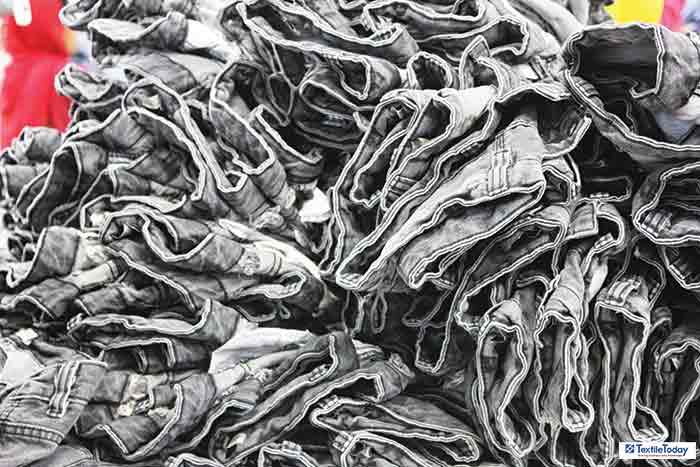A single pair of jeans takes more than 1,000 gallons of water to be produced, so the fashion industry must do a lot more to reduce vast water usage and chemical for huge environmental impact.
Because sustainability is becoming ever more of a factor for consumers to purchase decisions. In 2017, 33% of consumers are choosing to buy from brands they believe are doing social or environmental good, according to data from Accenture.
The study also says that 21% of consumers would actively choose brands if they made their sustainability credentials more clear on the packaging and in marketing.
Considering the environmental impact American denim brand Wrangler announced that it will release a line of denim made using a new eco-friendly foam-dyeing process in 2019. The technique is said to eliminate 99 percent of the water typically used in indigo-dyeing.
Foam dyeing is an alternative to traditional dyeing methods due to the potential environmental benefits. The main dyeing element in this process is foam, using air instead of water to carry the chemistry or dye onto the fabric.
Foam dyeing with indigo eliminates the use of several chemicals but still allows for traditional processes, wash-downs and effects seen with traditionally-dyed indigo fabrics.
Wrangler, along with the Walmart Foundation and fellow denim brand Lee, invested in the development of the new dyeing process with the new technique, raw denim is dyed with foam instead of water at Texas Tech University in 2017.

Wrangler has previously reinforced its image as an environmentally-conscious brand by funding ongoing work in the U.S. sustainable cotton, and publicly committing to reduce water usage in its denim production by five billion liters by 2020.
Spanish fabric mill Tejidos Royo will be the first to apply the foam-dye process, which it calls Dry Indigo. The dyeing machines for dry indigo will be made by U.S. based Gaston Mills, using a patented technique called Indigo Zero™ developed by Indigo Mill Designs.
Indigo Mill Designs originally partnered with Texas Tech University on development and trials of this technology. Tejidos Royo supposed to receive the dyeing equipment by the October of this year and will supply Wrangler finished denim fabric before the end of 2019.
Tejidos Royo Sales Director Jose Royo said, “Our Dry Indigo process nearly erases the environmental impact of denim dyeing and represents the next generation of denim production.”
Indigo Zero™ is able to dye both light and dark shades of denim. This technology adoption is a great example of how collaboration at all stages can bring new technology, idea, or innovation to market and has the potential to change an industry.
Dry Indigo can reduce water usage by up to 99 percent, uses 89 percent less chemicals, reduces energy usage by 65 percent and eliminates water discharge. Where traditional rope dye ranges consume 400 gallons of water per 100 yards of fabric, foam dyeing uses just 3.5 gallons.
Wrangler projects that if the technology is implemented only by Wrangler and Lee fabric suppliers in the Americas, 8 billion liters of water will be conserved annually, equaling the amount of water used by 70,000 Americans each year.
Once adopted by Wrangler and Lee suppliers globally, the impact will more than double. This technology could revolutionize the denim industry and allow companies to rethink traditional processing methods.
The savings potential with this dyeing method is significant for both the environment and the bottom line.
Reference: https://www.textiletoday.com.bd/foam-dyeing-potential-reduce-product-development-cycle-50-90/

